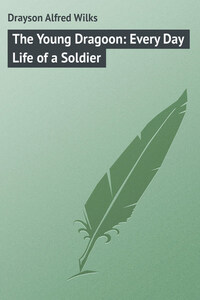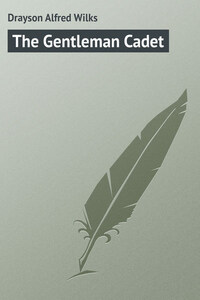Dear lovely bowers of innocence and ease,
Seats of my youth, when every sport could please;
How often have I loiter’d o’er thy green,
Where humble happiness endeared each scene!
Goldsmith.
I am a soldier, Frederick Trenchard, at your service. The prospect before me in my early days was, that instead of following the drum I should have followed the plough. My father was a farmer, living in the Midland counties; and I am the only one of a numerous family and a wide circle of family friends who ever took the Queen’s Shilling, and turned the ploughshare into a sword. My grandfather was a farmer; my uncle was a farmer; my cousin who married the heiress was a gentleman farmer; my cousin who fell in love with beer and skittles was a farm labourer. We were all of us sons of the soil, and it was the popular opinion in our family, that even sailors were no better than they should be (and, Heaven help us all, I suppose we none of us are), but that soldiers were utter outcasts – Sawney Beans in her Majesty’s livery – vultures in red coats and pipeclay – at which even Job Chequers, of the Green Man, shook his head, objecting strongly to the billet, and assuring everybody whom it concerned, or did not, that he would sooner pay the billet twice than lodge a soldier once.
There was a tradition in the village of a certain young Meadows who had gone for a soldier; what became of him I never heard, but always was taught to imagine the worst; as whenever it happened that any youngster had been engaged in a frolic, the wiseacres shook their heads, and said – “Ah! they saw how it would be – just like Meadows.” Now, I would not for a moment lead any of my readers to suppose that a soldiering life is the best a man can lead. Very far from that is the case. When I enlisted it was said of me, that I had given up a good home, sacrificed the esteem of every member of my family for the life of a vagabond. This was very far from being the case either. To be sure I gave up a good home, exchanging it for a life in barracks to begin with, and a life of peril to go on with; but I was not a vagabond, neither was there anything in what I had done to forfeit the esteem of good people. All sorts are wanted in this world. When we have all learned to be peaceable; when there is no foe to withstand, no skulking enemy to overcome, then I suppose Cincinnatus will return to his cabbages; till then the soldier is a necessity, and by his good sword and his strong arm the wealth of our country is preserved from the hand of the spoiler, and our honour maintained in the face of the world.
I am thinking of that dear old home of mine; the quiet village street, the little church, the littler clerk (forgive the grammar) who said Amen on Sundays – I am thinking of the squire’s house, encircled by a brotherhood of ancient elms, of the green pastures that led down to the river, of the yellow uplands that made the farmer’s heart rejoice – I am thinking of our own quiet homestead. A middling-sized farm was ours, but it had been ours for many a long year, and it was not burdened by mortgage; we were able to pay our way, and if father, when he rode his old cob “Billy” to market on Mondays, and dined with other farmers at the “Stag’s Head,” grumbled, do not all farmers grumble? and I expect they have done so ever since the first sickle was thrust into ripened corn.
Well, I was to be a farmer. I was getting into farming habits. I was speculating what I should do when my turn came to ride to market. To market, however, I never rode – my style of riding was learned in another school, and it would rather have startled the steady paced villagers of – to have seen me, as once on an October day I rode – dashing forward wildly with a whole body of brave-hearted fellows – right in the face of destruction, but steadily forward in the name of duty – even though duty meant death.
And now, apologising for this introductory chapter, let me briefly tell you why I became a soldier.
Angels and ministers of grace defend us! —
Be thou a spirit of health or goblin damn’d,
Bring with thee airs from heaven or blasts from hell,
Be thy intents wicked or charitable,
Thou comest in such a questionable shape!
Shakespeare.
Situate about a quarter of a mile from the village near which my father resided, was the parish church, a venerable structure clad with ivy. Near by a large yew-tree spread its branches over the centre of the churchyard. About one hundred yards from the church stood the cottage of Nicholas Hartley (more generally known by the name of “Old Nick”), the sexton and bell-ringer. He also carried on the business of a cobbler. “Old Nick” was by no means so sober a man as he ought to have been, considering the serious nature of his calling. He was quite as often to be found at the Green Man as at his own cottage. There were several youths in the village, including myself, who were prone to practical joking, and one unfortunate night we concocted a scheme to set the whole of the people in the village in wonder and fright.











